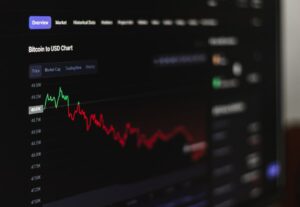The Role of Spreads in Forex Trading: Why It Matters to Your Bottom Line
When it comes to forex trading, understanding the role of spreads is crucial for traders aiming to maximize their profits. Spreads, also known as the difference between the bid and ask prices, directly impact the cost of entering and exiting trades. By comprehending the significance of spreads, traders can make informed decisions to optimize their bottom line.
What are Spreads?
In the forex market, currencies are traded in pairs, such as EUR/USD or GBP/JPY. Each pair has two prices: the bid price and the ask price. The bid price is the price at which traders sell the base currency, while the ask price is the price at which traders buy the base currency. The difference between these two prices is referred to as the spread.
Understanding the Components of Spreads
To better understand the role of spreads, it’s important to break down its components. Spreads consist of two parts: the brokerage commission and the market spread.
1. Brokerage Commission: The brokerage commission is the fee charged by the broker for facilitating the trade. Brokers may charge this fee as a fixed amount or as a percentage of the trade size. It’s important for traders to compare commission rates among different brokers to find the most cost-effective option.
2. Market Spread: The market spread is the difference between the bid and ask prices in the interbank market. This spread is determined by various factors, including liquidity, market volatility, and overall market conditions. Major currency pairs, such as EUR/USD, typically have lower spreads due to their high liquidity, while exotic currency pairs may have wider spreads.
The Impact of Spreads on Trading Costs
Spreads have a direct impact on trading costs and can significantly affect a trader’s bottom line. When entering a trade, traders must pay the ask price, and when exiting a trade, they must sell at the bid price. The difference between these two prices, the spread, represents the cost of the trade.
For example, let’s say a trader buys EUR/USD with a spread of 2 pips. If the trader enters the trade with a volume of 1 standard lot (100,000 units), the spread cost would be $20 (2 pips x $10 per pip). This cost is deducted from the trader’s account immediately upon entering the trade.
When the trader decides to close the position, they will sell EUR/USD at the bid price. If the bid price has moved 3 pips in their favor since entering the trade, the trader would make a profit of $30 (3 pips x $10 per pip). However, as the spread was deducted upon entering the trade, the trader’s net profit would be $10 ($30 profit – $20 spread cost).
From this example, it becomes evident that wider spreads can reduce potential profits and increase trading costs. Therefore, traders should consider choosing brokers that offer competitive spreads to maximize their profitability.
Factors Affecting Spreads
Various factors influence the spreads offered by brokers. Understanding these factors can help traders make more informed decisions when selecting a broker:
1. Market Volatility: Spreads tend to widen during periods of high market volatility. This is because increased volatility can create rapid price movements, and brokers may need to manage their risk by widening spreads.
2. Liquidity: Currency pairs with high liquidity, such as major pairs, tend to have tighter spreads. High liquidity ensures that there are enough buyers and sellers in the market, reducing the spread.
3. Time of Day: Spreads can fluctuate depending on the time of day. During times of low trading volume, such as weekends or holidays, spreads may widen due to decreased liquidity.
Choosing the Right Broker
To optimize your bottom line, it is essential to choose a broker that offers competitive spreads. When selecting a broker, consider the following:
1. Reputation and Regulation: Ensure the broker is reputable and regulated by a recognized financial authority. This will help safeguard your funds and ensure fair trading conditions.
2. Transparent Pricing: Look for brokers that offer transparent pricing, allowing you to easily see the spreads they offer. Avoid brokers with hidden fees or excessively wide spreads.
3. Execution Speed: Fast execution speed is crucial in forex trading. Choose a broker with a reliable trading platform and efficient execution to minimize slippage and ensure accurate trade execution.
In conclusion, spreads play a significant role in forex trading and directly impact a trader’s bottom line. By understanding how spreads work and considering their impact on trading costs, traders can make informed decisions to maximize profitability. Choosing a reputable broker that offers competitive spreads is vital for successful forex trading.





